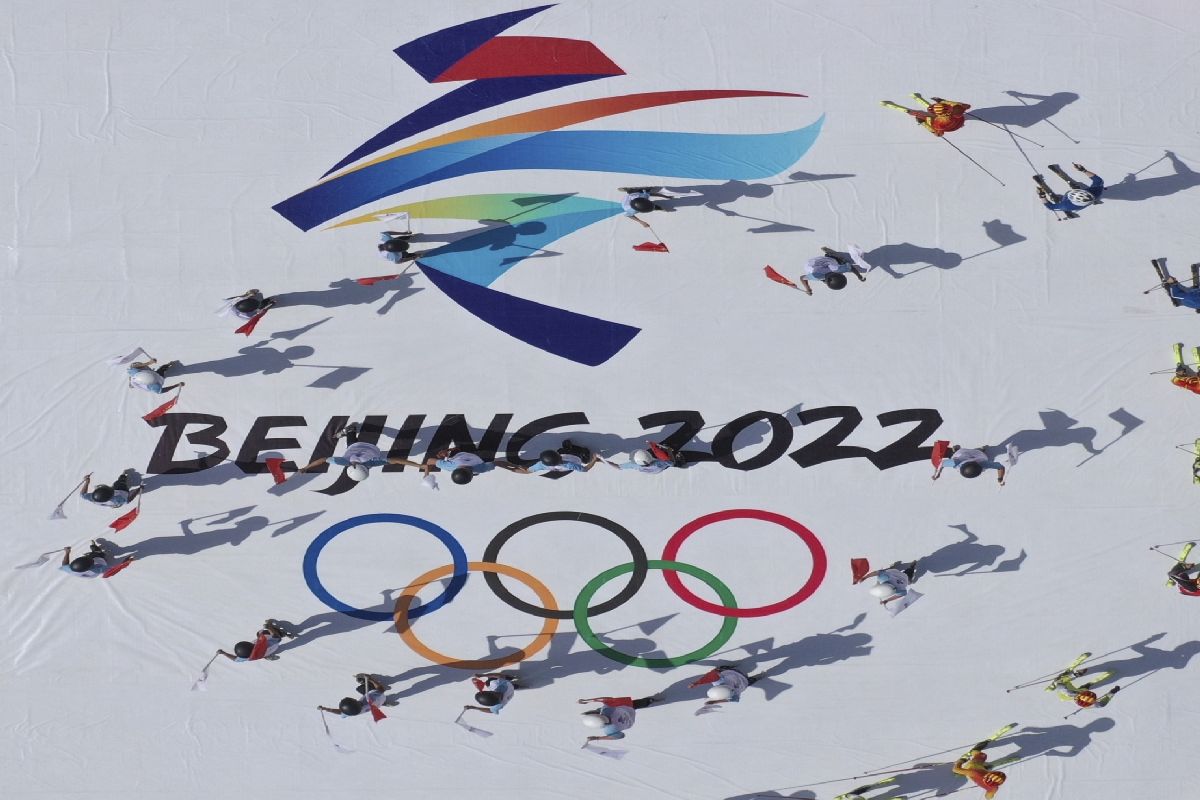Still unexplained
The hunt for the origins of Covid-19 has for the past four years been a tangled web of politics, power struggles, and international finger-pointing.
A carrot-and-stick approach is needed one that would allow the Games to go forward on the condition that Beijing make specified compromises on key human rights issues involving the widespread detention of Uighurs and increasingly aggressive measures to bring its 60 million Christians to heel.

Chongli, May 11, 2019 (Xinhua) -- Aerial photo taken on May 11, 2019 shows the performance during the 1000-day countdown celebrations of the Beijing 2022 Olympic Winter Games held in Chongli of Zhangjiakou City, north China's Hebei Province. (Xinhua/Xing Guangli/IANS)
The next Olympic Winter Games are scheduled to take place in Beijing in February 2022. While the Olympics are a promotion of global peace and unity, the Communist Party of China’s human rights abuses against Uighur Muslims and Chinese Christians are a stark contrast to the International Olympic Committee’s (IOC) stated ideals of building a peaceful, better world.
The CCP’s misdeeds against its citizens of the Islamic and Christian faiths must compel the IOC and global community to demand needed changes in order for the Games to go forward in Beijing. This is to say nothing of the CCP’s violation of Hong Kong’s autonomy through the recent imposition of its security law on Hong Kong, nor of its role in hiding initial information about Covid-19 from the World Health Organization and obscuring the outbreak.
The CCP’s egregious behaviour demands a rethink as to whether or not the 2022 Winter Games should be held in Beijing absent a major course correction of the regime towards the treatment of its Muslim and Christian populations. A carrot and stick approach is needed ~ one that would allow the Games to go forward on the condition that Beijing make specified compromises on key human rights issues involving the widespread detention of Uighurs and increasingly aggressive measures to bring its 60 million Christians to heel.
Advertisement
Understandably, critics of imposing new conditions for the 2022 Beijing Winter Olympics argue that there are no viable replacement venues at present, that the IOC does not have a history of showing concern over human rights and that the IOC is relying on the scheduled Beijing Games to protect it from further financial losses after taking a hit from the cancellation of the 2020 Tokyo Olympic Games due to Covid-19.
Besides, some assert, often times the fix is in as the IOC will award venues to the countries that bribe, wine and dine the most lavishly. The human condition, it is argued, is the last thing on the minds of IOC decision makers and it will be no different with Beijing in 2020. For its part, the CCP contends that demands to improve the plight of Uighurs and Chinese Christians ~ accompanied by criticism of Beijing’s recent crackdown in Hong Kong ~ are an intrusion into China’s internal affairs and are inherently hypocritical.
Why confront China over these issues while not applying the same standards to the 2028 Los Angeles Olympiad amid prolonged US social unrest involving African Americans and law enforcement? While all human suffering is bad and efforts must not be spared to help each community in crisis, the “whataboutism” typically employed by Beijing deflects from the point at hand: the egregious abuses against the Chinese people ~ Uighurs and Christians in particular ~ which constitute some of the most shocking and pressing human rights issues of our time and are not absolved by American shortcomings.
The IOC’s failure to look past human rights violations, while nothing new, must change this time around. Given the revelations in recent years of China’s crimes against its Uighur and Christian citizens, the IOC and the global community must demand specific changes in the CCP’s behaviour in order to allow for the Beijing 2022 Winter Olympic Games to proceed.
What should these changes be? • Closing the system of Uighur detention and reeducation camps. • Ending the forced sterilization of Uighur women and accompanied mandatory abortion and birth control measures aimed at slashing the birth rates of China’s Muslim population. • Shutting down the systematic tracking, surveillance and arrests of Uighur civilians. • A cessation of the ongoing campaign to demolish churches, annotate Chinese Bible scripture, imprison Christian pastors and remove the crosses of hundreds of churches throughout China.
Detractors may argue that such demands are unwarranted and that prospects for progress are improbable. Yet, we can learn from recent history as to how effective human rights advocacy can involve a give-and-take approach. During the Reagan Administration’s arms control negotiations with the Soviets, Secretary of State George Schultz was known to demand targeted human rights concessions from Moscow as part of the overall disarmament talks. His advocacy was chastised by some as being naïve, irrelevant to the mission at hand and even reckless.
Yet, sometimes Secretary Schultz’s bids paid off and yielded humanitarian concessions by the Soviets, saving lives. Given the scope and severity of the CCP’s abuses against Uighurs and Christians, it is appropriate and justified for the world community to use the 2022 Beijing Winter Olympics as leverage for demanding progress on key humanitarian fronts.
The United States and a coalition of sister democracies ought to lead this effort. Otherwise, we may want to take a step back and ask ourselves if societies built upon universal ideals and the rule of law are content with allowing the CCP’s power and wealth to bully and intimidate the world into subservience and silence.
(The writer is an Instructor of Political Science at Claremont Graduate University, USA)
Advertisement